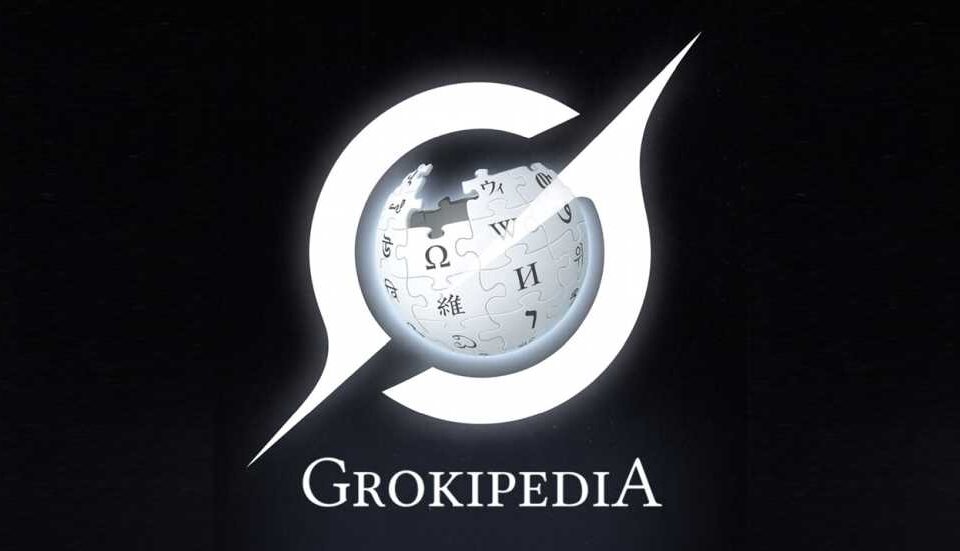Copyright TechStartups.com

In late September, Elon Musk unveiled Grokipedia, an xAI alternative to Wikipedia. Fast forward a month, and his attempt to build a “truth-seeking” rival has already backfired. On Monday, October 27, 2025, Musk announced that Grokipedia — an AI-powered encyclopedia built by his company xAI — was officially live. He said on social media the site was meant to challenge what he called the “woke” Wikipedia, promising “the truth, the whole truth and nothing but the truth.” But it didn’t take long for that promise to collapse. Within hours, multiple outlets, including The Verge, Futurism, and Wired, reported that Grokipedia had copied Wikipedia — word for word, formatting and all. The so-called “AI encyclopedia” that Musk claimed would correct bias appears to have cloned the very site it set out to replace. The Grokipedia Copycat Problem Grokipedia’s dependence on Wikipedia is impossible to miss. Some of its entries even acknowledge that their “content is adapted from Wikipedia, licensed under Creative Commons Attribution-ShareAlike 4.0 License.” But many pages — including those for Monday, Apple, and the PlayStation 5 — are nearly identical to their Wikipedia versions, down to structure and phrasing. And where Grokipedia does make edits, they often carry a noticeable ideological slant. For example, The Verge pointed out that the climate change entry quietly removed words like “unanimous,” which describe the near-universal scientific consensus that human activity drives global warming. “Elon Musk’s Grokipedia Extensively Copied From Wikipedia. ‘Even Grokipedia needs Wikipedia to exist.’,” Futurism reported. NBC News observed that the Donald Trump entry omits entire sections, including reports about a private jet gifted by Qatar — widely characterized as a bribe — and Trump’s ill-fated meme coin. Musk’s own page, meanwhile, skips over unflattering details, such as reports that he made Nazi salutes at Trump’s inauguration celebration. Wired found even more disturbing changes. A Grokipedia article about slavery in the U.S. adds a section citing “ideological justifications” for enslaving African Americans. Another entry links gay pornography to the HIV/AIDS epidemic. Grokipedia’s page on Wikipedia itself goes meta — claiming the platform “has a left-leaning slant in coverage of political figures and topics.” Wikipedia Responds Lauren Dickinson, a spokesperson for the Wikimedia Foundation, didn’t mince words. “Unlike newer projects, Wikipedia’s strengths are clear: it has transparent policies, rigorous volunteer oversight, and a strong culture of continuous improvement,” she said in a statement shared widely online. She added that “Wikipedia’s knowledge is — and always will be — human. Through open collaboration and consensus, people from all backgrounds build a neutral, living record of human understanding — one that reflects our diversity and collective curiosity.” Her message carried a quiet sting: “This human-created knowledge is what AI companies rely on to generate content. Even Grokipedia needs Wikipedia to exist.” Grokipedia: The Transparency Gap Beyond the plagiarism issue, Grokipedia’s mechanics raise larger concerns. The site gives users an “edit” button, but clicking it doesn’t let anyone change the content. There’s no indication of how entries are created, verified, or updated. Critics argue this makes Grokipedia the opposite of what it claims to be. Wikipedia, for all its flaws, is open and traceable — every edit can be reviewed, every change can be reversed. Grokipedia offers no such visibility. It’s a static echo of the site it copied, stripped of the collaborative DNA that made Wikipedia work. As one analyst summarized, Grokipedia’s problems are structural: it’s part copy, part rewrite, and completely unclear about what’s original. Pages like “Transistor” include references, while others like “Miller Effect” show none. The lack of traceability leaves users guessing which parts have been altered and by whom. In short, it’s the encyclopedic equivalent of “trust me, bro.” Below is a side-by-side screenshot comparison of the ‘Miller Effect’ on Wikipedia and Grokipedia. Miller Effect page on Wikipedia Miller Effect page on Grokikipedia The irony of it all Musk’s framing of Grokipedia as an alternative to “woke” Wikipedia was meant to signal independence. Instead, the site’s debut exposed how deeply AI projects still rely on human-created work to function. For all its talk of truth, Grokipedia is built on the unpaid labor of thousands of Wikipedia volunteers — the very people it was trying to replace. That irony may turn out to be the most revealing part of this story. Grokipedia didn’t just copy Wikipedia’s words. It copied the idea that truth is something you can automate — and that’s the one thing no algorithm can replicate.



